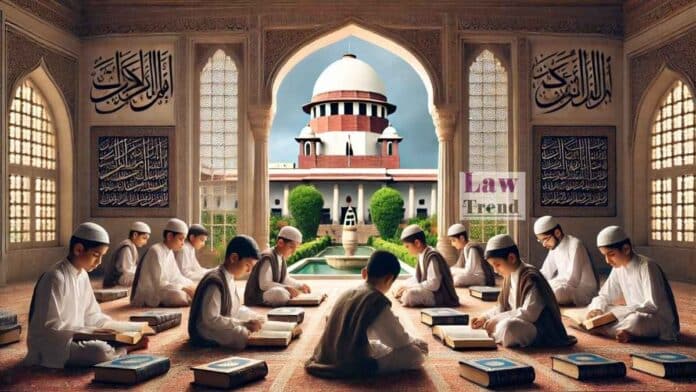In a pivotal ruling, a three-judge bench of the Supreme Court of India, comprising Chief Justice Dr. Dhananjaya Y. Chandrachud, Justice J.B. Pardiwala, and Justice Manoj Misra, upheld the Uttar Pradesh Board of Madarsa Education Act, 2004. The Court ruled that legislation cannot be struck down solely on the grounds of violating the “basic structure”
To Read More Please Subscribe to VIP Membership for Unlimited Access to All the Articles, Download Available Copies of Judgments/Order, Acess to Central/State Bare Acts, Advertisement Free Content, Access to More than 4000 Legal Drafts( Readymade Editable Formats of Suits, Petitions, Writs, Legal Notices, Divorce Petitions, 138 Notices, Bail Applications etc.) in Hindi and English.




